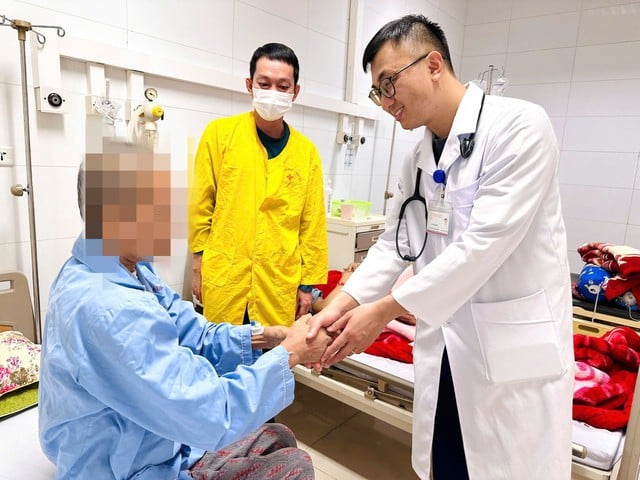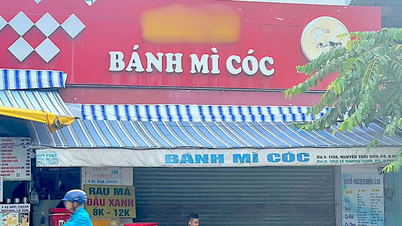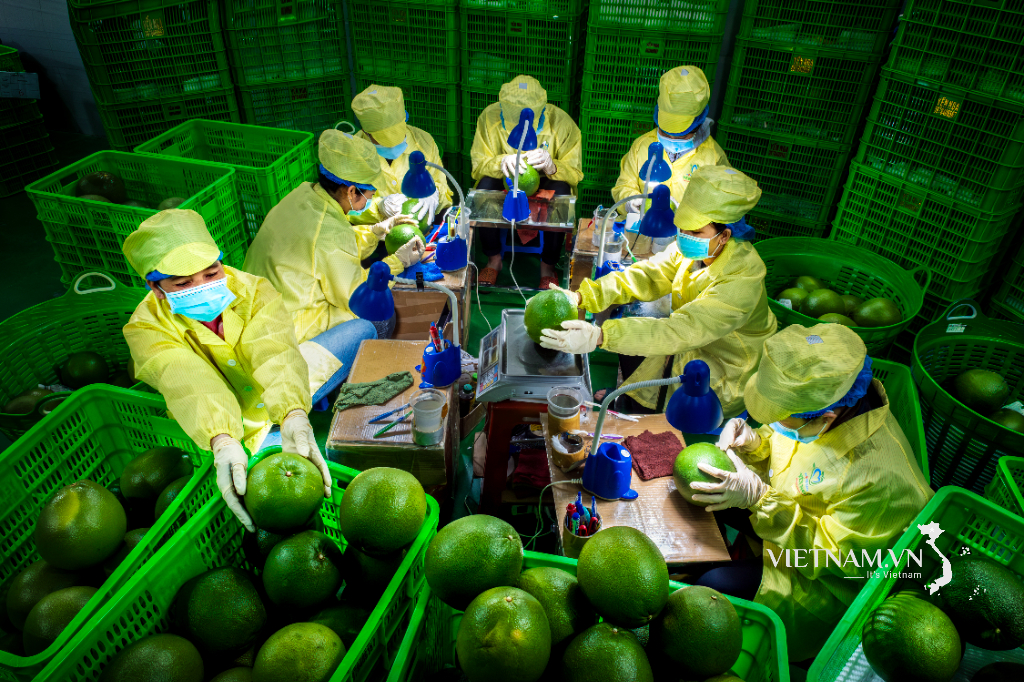Ms. LTH (61 years old, residing in Ham Rong ward, Thanh Hoa province) was hospitalized with severe abdominal pain, constipation, and abdominal distension. Through clinical examination and abdominal CT scan, doctors determined that Ms. H. had intestinal obstruction due to necrosis of the small intestine. Ms. H. was indicated for emergency surgery to remove the necrotic intestine and connect the intestine. After surgery, the patient's health improved, she was able to defecate, her abdomen was soft, the surgical wound was dry, and there was no discharge.
About a week after surgery, the patient began to show unusual symptoms such as jaw stiffness, muscle stiffness throughout the body, and suspected generalized tetanus. The patient was quickly consulted by an interdisciplinary team and transferred to the Tropical Diseases Department for further treatment. Here, the condition worsened with generalized convulsions, increased phlegm secretion, respiratory failure, and hypotension, threatening his life.

Patient H. was monitored and actively cared for according to the protocol at the Department of Tropical Diseases.
Faced with the patient's critical condition, the doctors of the Tropical Diseases Department urgently implemented intensive treatment with a comprehensive regimen including injection of tetanus antitoxin (SAT), use of antibiotics, sedatives, muscle relaxants, seizure control, tracheostomy, mechanical ventilation, nutritional care and rehabilitation. After more than 4 weeks of continuous treatment, the patient fully recovered, no more stiffness, no more seizures, vital signs returned to normal and was discharged in a stable condition.
Dr. Do Xuan Tien, Head of the Department of Tropical Diseases, said that tetanus is an acute infectious and toxic disease caused by the bacteria Clostridium tetani. "This bacteria commonly exists in soil, dirt and animal feces, and can enter the body through open wounds on the skin or mucous membranes. However, cases of tetanus after abdominal surgery as above are extremely rare," said Dr. Do Xuan Tien.

Patient LTH recovered completely and was discharged from the hospital to the joy of family and doctors.
Dr. Tien further analyzed that the special thing about this case is that the patient had no external wounds, and the surgery was performed under strict sterile conditions, eliminating the usual route of infection. Doctors determined that the source of the disease is likely endogenous, that is, Clostridium tetani bacteria that can exist in the digestive tract in the form of spores. Under normal conditions, spores do not cause disease, however, when intestinal obstruction or intestinal necrosis occurs, the environment in the intestine becomes anaerobic, creating conditions for spores to develop into active bacteria and produce toxins that cause tetanus.
According to the Head of the Department of Tropical Diseases, this case shows the complexity of tetanus. Although the surgical procedure and post-operative care are strictly ensured, endogenous bacteria can still develop in special conditions. Closely monitor patients after surgery, detect early signs of abnormalities and proactively vaccinate fully against tetanus as recommended, especially in adults, pregnant women, people with a history of surgery or wounds. When there is a wound, even a small one, it is necessary to handle it properly and go to a medical facility for timely vaccination advice.
It is necessary to strictly implement labor protection regulations such as wearing gloves, boots, and protective clothing when working in soil, sand, animal manure, mechanical, agricultural , or construction environments, places with high risk of exposure to Clostridium tetani, and raise awareness of labor safety to minimize wounds that can be a gateway for tetanus bacteria to enter.
Source: https://suckhoedoisong.vn/cuu-cu-ba-bi-uon-van-toan-the-cuc-hiem-sau-phau-thuat-169251111144332718.htm


![[Photo] Chu Noodles - the essence of rice and sunshine](https://vphoto.vietnam.vn/thumb/1200x675/vietnam/resource/IMAGE/2025/11/11/1762846220477_ndo_tl_7-jpg.webp)



![[Photo] Prime Minister Pham Minh Chinh receives Lao Minister of Labor and Welfare Phosay Sayasone](https://vphoto.vietnam.vn/thumb/1200x675/vietnam/resource/IMAGE/2025/11/11/1762872028311_dsc-2246-jpg.webp)



























































































![Dong Nai OCOP transition: [Article 3] Linking tourism with OCOP product consumption](https://vphoto.vietnam.vn/thumb/402x226/vietnam/resource/IMAGE/2025/11/10/1762739199309_1324-2740-7_n-162543_981.jpeg)








Comment (0)